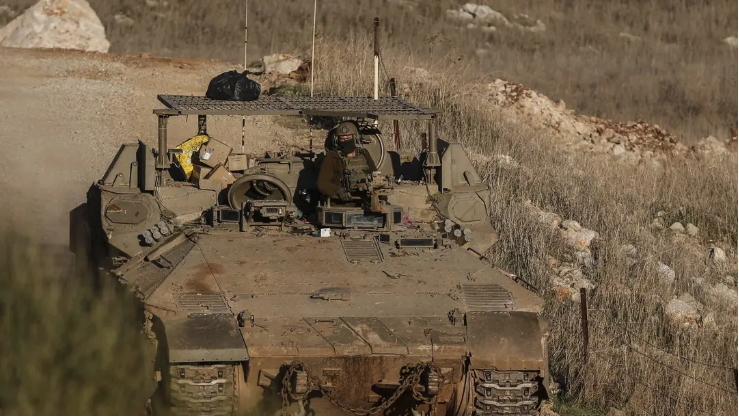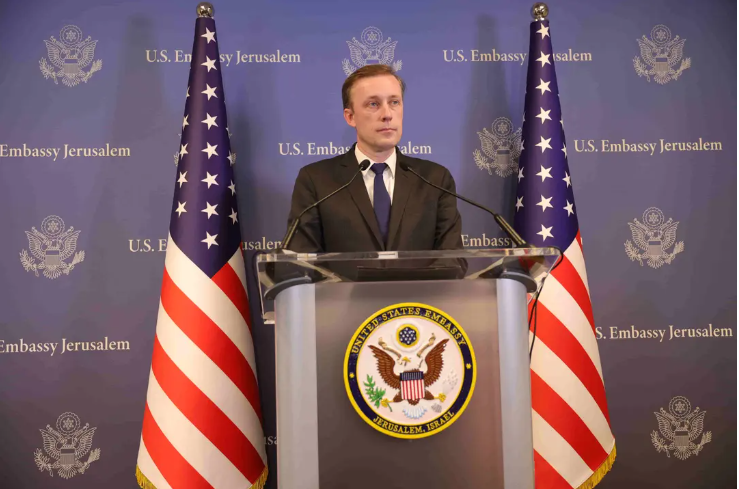Israeli Forces Fire on UN Peacekeepers Second Day in a Row
Israel's military confirmed that its strike near the headquarters of the UN Interim Force in Lebanon (UNIFIL) in Naqoura injured two peacekeepers from Sri Lanka, the second such incident in the area over the past two days....
Facts
- Israel's military confirmed that its strike near the headquarters of the UN Interim Force in Lebanon (UNIFIL) in Naqoura injured two peacekeepers from Sri Lanka, the second such incident in the area over the past two days.[1][2]
- According to Israel, this comes as its forces were responding to a Hezbollah threat, and peacekeepers were told to take shelter.[1][2]
- Separately, the Lebanese army said an Israeli attack on an army post in southern Lebanon killed two of its soldiers and injured three. Lebanon's Prime Minister Najib Mikati condemned the incident, and Israel has not yet commented on it.[3][4]
- Mikati appealed to the UN on Friday to adopt a resolution calling for an 'immediate' cease-fire between Israel and Hezbollah and urged the parties to abide by the Security Council Resolution 1701 from 2006, which stipulates that only Lebanese army and UN peacekeepers should be deployed in southern Lebanon.[3][5]
- Also on Friday, US State Secretary Antony Blinken discussed the situation in Lebanon in a call with Lebanese Speaker of Parliament Nabih Berri — the leader of the Shiite Amal Movement and a prominent mediator between the international community and Hezbollah.[6][7][8]
- Meanwhile, Hezbollah said its current priority is confronting the Israeli military but that it was open to ending hostilities. Earlier this week, the group — for the first time — publicly endorsed a truce without conditioning it to a cease-fire in Gaza.[9][10]
Sources: [1]Reuters, [2]UNIFIL, [3]Lorientlejour (a), [4]Timesofisrael (a), [5]New York Times, [6]US Department of State, [7]Middle East Eye, [8]Lorientlejour (b), [9]Timesofisrael (b) and [10]CNN.
Narratives
- Pro-establishment narrative, as provided by New York Times. Though the situation in the region continues to escalate, the US has stood firm in its role as a mediator. Israel has every right to respond to the daily terror attacks it has seen since Oct. 7. However, it is in no one's interest for tensions to explode into a wider regional war. The US will continue to work toward regional stability.
- Pro-Israel narrative, as provided by Jerusalem Post. Israel has been incredibly patient regarding the situation in the north, but after a year of daily terror attacks on Israeli civilians, it has been forced to deal with Hezbollah more aggressively. International pressure has failed to deter Hezbollah and its Iranian sponsors. Israel wants peace more than anyone, but it cannot allow Hezbollah and other Iran-backed terror groups to threaten its society in such an existential way.
- Pro-Palestine narrative, as provided by Middle East Eye. Israel has escalated the situation in the region, with the US supporting it every step of the way. Indeed, Israel may expand its genocidal campaign that began in Gaza to Lebanon. Though the US, the most powerful country in the world, has continued its charade that it wants de-escalation, the reality is that it fully supports Israel's crimes across the region. Hamas and Hezbollah may be weakened, but resistance to Israel's expansionist project is inevitable.
- Narrative D, as provided by Almayadeen. Israel has chosen to launch a civilizational war against the entire region, specifically Palestinians and the Shiites of the Middle East. Targeting lists leaked by Israeli media showed that Ayatollah Ali al-Sistani, Iraq's highest religious authority and a well-known moderate, was included as a possible target, proving that Israel's goal is to spark a religious war. Religious leaders like Sistani have consistently called for co-existence, which is exactly why Israel seeks to assassinate him.







